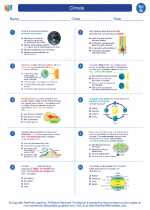Catalysts
A catalyst is a substance that speeds up a chemical reaction without being consumed in the process. It works by lowering the activation energy required for the reaction to occur, thus making the reaction proceed faster. Catalysts are important in various industrial processes and biological systems.
Types of Catalysts
There are two main types of catalysts:
- Heterogeneous catalysts: These are catalysts that are in a different phase (e.g., solid, liquid, gas) from the reactants. An example is the use of a solid metal catalyst in the hydrogenation of vegetable oils.
- Homogeneous catalysts: These are catalysts that are in the same phase as the reactants, usually in a liquid phase. An example is the use of acids as catalysts in certain organic reactions.
Role of Catalysts
Catalysts provide an alternative reaction pathway with a lower activation energy, allowing the reaction to occur more readily. They do not affect the overall change in energy during the reaction or the equilibrium concentrations of the products and reactants.
Study Guide
To understand catalysts, consider the following key points:
- What is a catalyst and how does it work?
- What are the different types of catalysts?
- What is the role of catalysts in chemical reactions?
- What are some examples of catalysts used in industrial and biological processes?
- How do catalysts impact reaction rates and equilibrium?
- What factors can affect the effectiveness of catalysts?
Understanding catalysts is essential for comprehending the mechanisms of chemical reactions and their applications in various fields.










